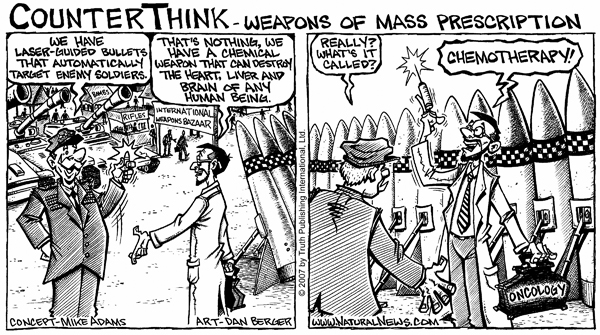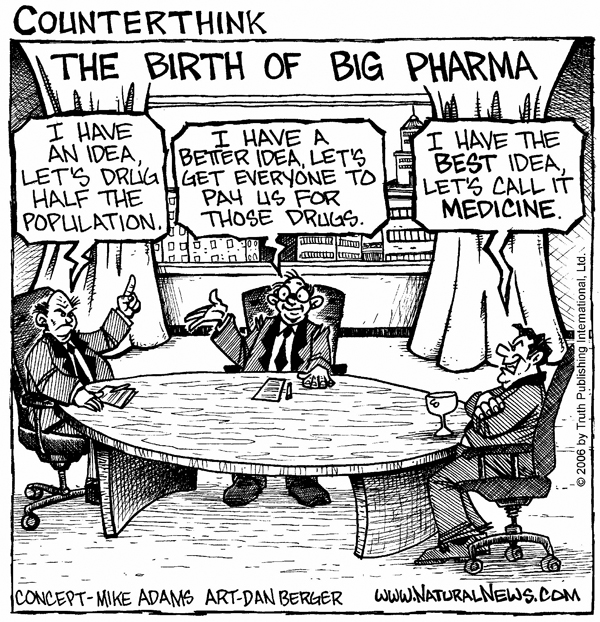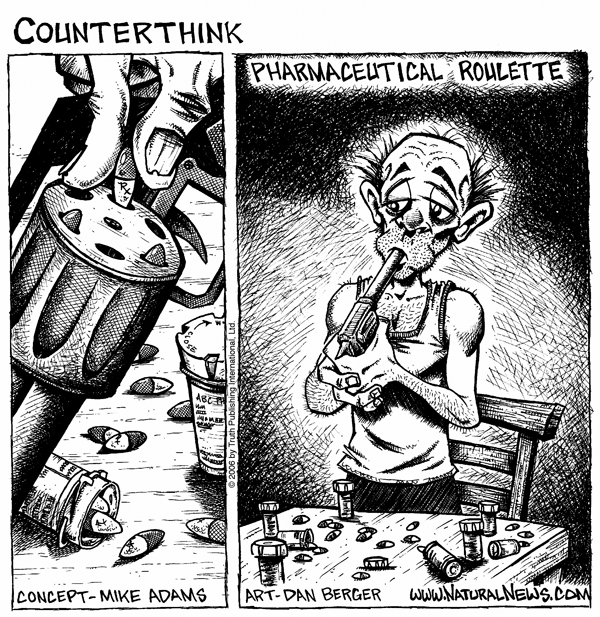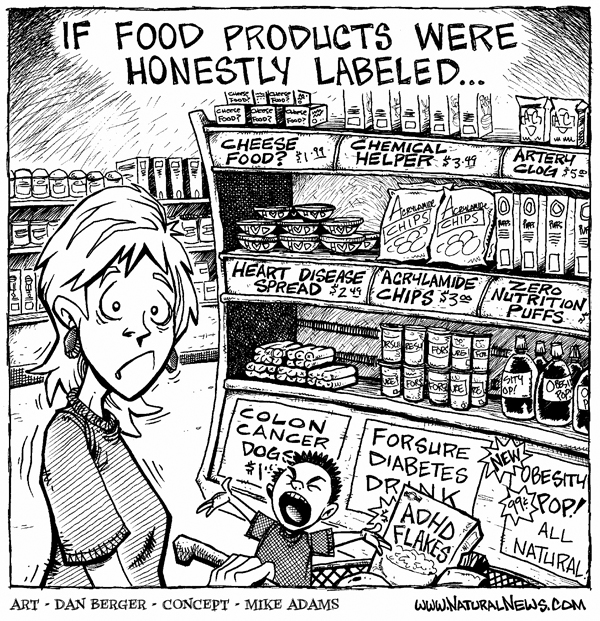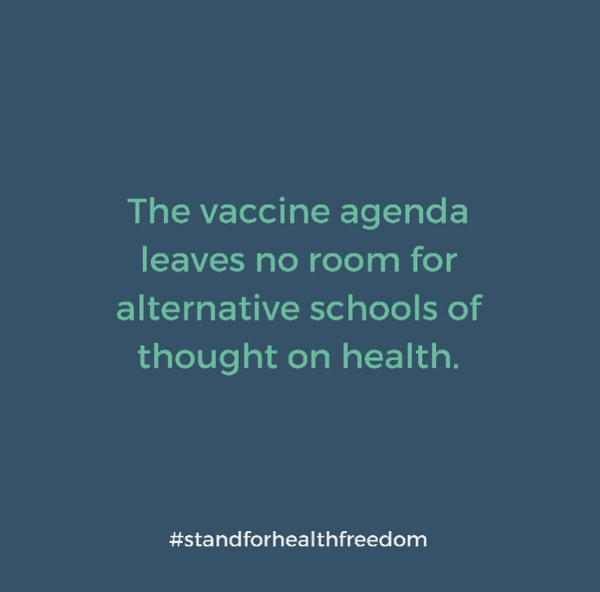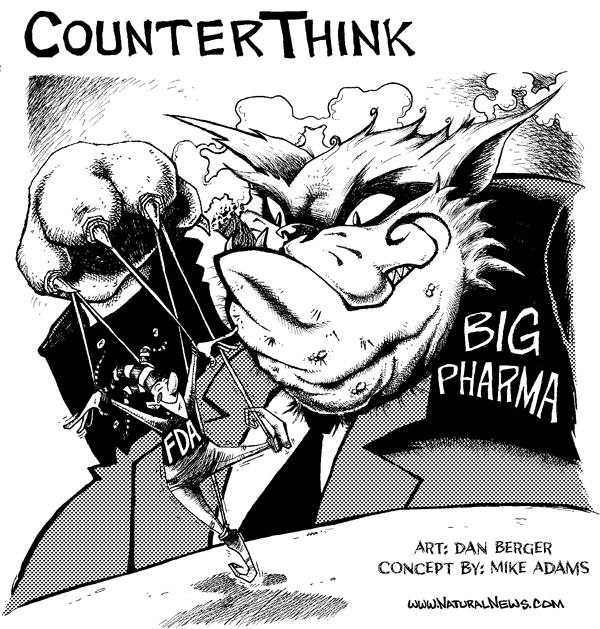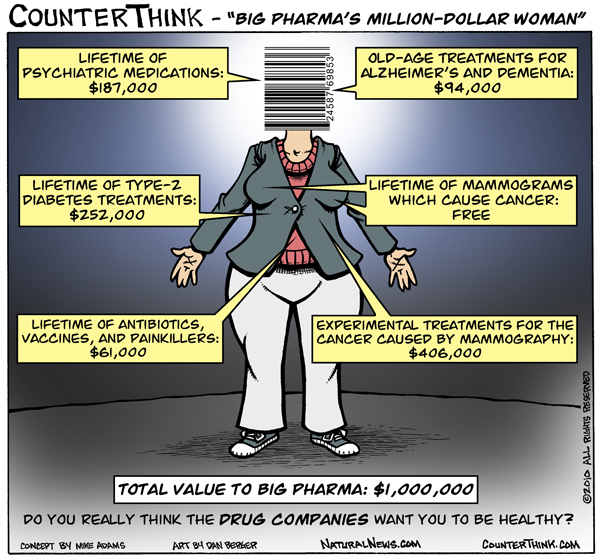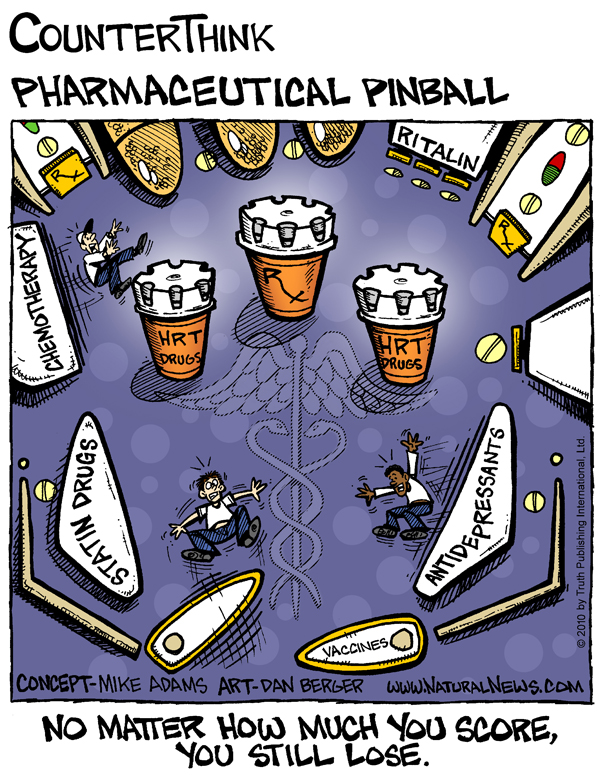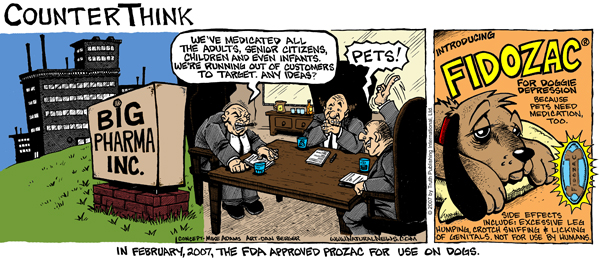The ones I have tried have good flavor but I haven't seen any disclosure on what's really in themBlech, passion fruit flavor makes me gag. I’m glad I read this. This really applies to what we vape, since we’re taking it in through our lungs! And just what we need GMO vanillin!
Have you ever tried those Medicine Flower flavors? They’re super expensive but I’m curious how they are.
Become a Patron!
You are using an out of date browser. It may not display this or other websites correctly.
You should upgrade or use an alternative browser.
You should upgrade or use an alternative browser.
Jimi's Daily Health Articles
- Thread starter Jimi
- Start date
A buddy of mine raises a few turkeys he calls them Thanksgiving, Christmas, and EasterI got weirded out after reading about Turkeys here and how messed up they are, and all these folks are buying Turkeys from the supermarkets! Yikes.

Yes that's the only way to have "safe" turkey, to raise it yourself
A buddy of mine raises a few turkeys he calls them Thanksgiving, Christmas, and Easter
Yes that's the only way to have "safe" turkey, to raise it yourself, really sad

Oh, those names are funny! At least he has good turkey for the holidays, though.

The Benefits of Forgiveness and How Negativity Causes Cancer


https://www.brighteon.com/5008175e-d6f4-4c43-989c-33b8460d36c7
Very good video
https://www.brighteon.com/5008175e-d6f4-4c43-989c-33b8460d36c7
Very good video
Are These "Health Products" Really Healthy?
https://www.foodmatters.com/article/are-these-health-products-really-healthy
https://www.foodmatters.com/article/are-these-health-products-really-healthy
HIDDEN DANGERS FOR THYROID HEALTH
https://www.drmariza.com/hidden-dan...d9fb6895c5a2af651f238aa2edbb9c8b7cff03e0b16a0
https://www.drmariza.com/hidden-dan...d9fb6895c5a2af651f238aa2edbb9c8b7cff03e0b16a0
Association between oral contraceptive use as a risk factor and triple-negative breast cancer: A systematic review and meta-analysis
https://www.ncbi.nlm.nih.gov/pmc/ar...ca3d458d6ee69cc0558ed5d4c28cbfab114022b1ec50d
https://www.ncbi.nlm.nih.gov/pmc/ar...ca3d458d6ee69cc0558ed5d4c28cbfab114022b1ec50d
Enzyme Therapy and Breast Cancer
https://breastcancerconqueror.com/e...648b72ef45b6309c74070ac2bf3cfa7869e3cfd4ff832
https://breastcancerconqueror.com/e...648b72ef45b6309c74070ac2bf3cfa7869e3cfd4ff832
The Startling Cancer Therapy
EVERY Patient Should Do
If you fall victim to cancer, there’s one surprising natural therapy that can help you fight tumors and improve the way you withstand the awful side effects of chemotherapy and radiation.
That therapy is exercise. But don’t worry, exercise to help heal cancer doesn’t have to be a sweat and feel-the-burn daunting kind of physical activity. Here’s a report on the exiting new research. Lets take a look...
Readers of this newsletter know that I advocate choosing an exercise plan you can stick with and enjoy.
Forget a strenuous spin class, running a marathon or hard-core kick-boxing. If you’re suffering from cancer, using exercise to help heal your illness can consist of a simple walk through your neighborhood (which is what I do).
Exercise as cancer treatment
Numerous journal-published studies show that even mild exercise results in benefits that improve the health and well-being of virtually anyone with cancer.
In fact, the evidence for the use of exercise to fight cancer is so overwhelming that the medical establishment in other countries now recognizes how important it is.
The Clinical Oncology Society of Australia (COSA), the main national body that represents Australian healthcare providers that treat cancer patients, now recommends that every cancer patient – every patient – be given a prescription for exercise as part of their treatment.
As the chair of the COSA Exercise Cancer guidelines committee Dr. Prue Cormie explains, “If we could turn the benefits of exercise into a pill it would be demanded by patients, prescribed by every cancer specialist and subsidized by government. It would be seen as a major breakthrough in cancer treatment.”
Exercise sparks important
internal changes that fight cancer
Bigger muscles and smaller waistlines are, of course, the most recognizable visible effects of exercise that usually show up in people who exercise consistently. Those changes you can see. But when it comes to your health – and how your body deals with cancer – the most important changes happen inside where you can’t see them.
A vital factor is what exercise does to the immune system. Many studies show that an exercise program can stimulate your immune system and allow it to more effectively fight infection. Now research is demonstrating that exercise can help the body fight off malignancies by encouraging the immune system to attack tumors.
How this happens hasn’t been entirely explained. But by examining how certain immune cells interact with cancer cells, researchers are getting closer to the answers.
For instance, researchers at the University of Japan have found that in many cases the immune system lets tumors grow because cancer cells can somehow recruit immune cells called T cells as a defense against other immune cells that would otherwise destroy the cancer cells.1 In other words, cancer can actually turn the immune system against itself.
With those findings in mind, researchers at the University of Indiana performed lab tests suggesting that aerobic exercise – activities like jogging, swimming or brisk walking – can reduce the number of these traitorous T cells that keep cancer cells safe from the immune system attack.2
As the Indiana scientists point out, “(Our study) implicates enhanced anti-tumor immunity as a means by which aerobic exercise can suppress tumor growth.” That’s research-talk for saying that aerobic exercise helps your immune system go after cancer cells.
In their report, the researchers also emphasize that being physically fit both discourages tumors from forming and also helps you fight cancer if you develop a tumor: “Being endurance-trained (i.e. aerobically fit) could increase the likelihood for better (cancer) patient outcomes and adds to the ever-growing list of reasons for engaging in regular aerobic activity.”
Exercise reduces fatigue
“more than any other therapy”
Along with helping fight tumors, exercise is very effective at offsetting some of the awful side effects that accompany the chemotherapy and radiation usually used to treat cancer.
Extreme and persistent fatigue is one of the most debilitating problems caused by these conventional cancer treatments. Many oncologists prescribe drugs designed to offset cancer-related fatigue.
But researchers at the University of Rochester say exercise and psychological help are more effective and far safer than these medications.
"If a cancer patient is having trouble with fatigue, rather than looking for extra cups of coffee, a nap, or a pharmaceutical solution, consider a 15-minute walk," says researcher Karen Mustian, who teaches at the University of Rochester Medical Center Department of Surgery's Cancer Control Program. "It's a really simple concept but it's very hard for patients and the medical community to wrap their heads around it because these interventions have not been front-and-center in the past.”
The data analyzed by the Rochester scientists – from more than 100 independent studies of cancer fatigue – indicate that exercise, all by itself, reduces fatigue more than any other therapy. To a lesser degree, a psychological intervention such as personal therapy that helps patients understand how to deal with their fatigue and change their daily behavior to cope better, also helps.
The research shows that the drugs doctors dish out – which include modafinil, which is used to treat narcolepsy (a tendency to fall asleep anywhere, anytime), and ritalin, which is meant to help with ADHD – are less effective than a refreshing walk around the block.3
Take it to heart
One of the more frequent dangers to cancer patients is the heart damage that can occur from the inflammation caused by chemotherapy and radiation.
The damage to the heart caused by cancer treatment is called “cardiotoxicity” – a condition in which drugs or radiation impair your heart function and structure. But exercise can help reduce these issues. Researchers in Italy say that eating a healthier diet – with more fruits and vegetables – accompanied by appropriate exercise offers crucial cardiovascular protection.4
“Cancer patients are often less active than adults without cancer,” says researcher Flavio D'Ascenzi, who is with the University of Siena in Italy. “However, exercise is essential for patients diagnosed with cancer who are under treatment, irrespective of the type of treatment.”
Dr. D’Ascenzi adds that if you are being treated for cancer, you probably need to consult with an exercise physiologist or other specialists to find out which type of exercise is best for you.
For example, if your cancer and its treatment have left you low in hemoglobin (which carries oxygen in the blood), you should avoid intense exercise. If your blood platelets are low you need to stay away from contact sports (platelets enable blood clotting). And if your bones are weak you should not do activities that increase your chances of a fracture.
When will American doctors
start prescribing exercise?
Now that the Aussies are trying to get all cancer patients to exercise, I wonder how long it will take until the US catches up?
I’ll give you a hint: Nearly 15 years ago, when I first began publishing about cancer treatments, we wrote about blood tests that could identify which agent – which nutrient or herbal remedy or chemotherapy drug – was most likely to kill the unique strain of cancer you happen to have. We gave addresses and contact info where people could get these tests.
The test was available from two foreign labs, but you couldn’t get it from an American lab.
Last night on television I saw an ad for a similar blood test, now available to any American who wants it.
15 years is a long time to wait for a lifesaving treatment. And at least when it comes to exercise, you sure don’t have to wait for conventional medicine to notice it. You can do it yourself, right now, without so much as a howdy-do from a doctor.
Tragically, too many Americans have still not gotten the message that exercise fights cancer – both in lowering the risk of cancer and fighting cancer once it strikes.
It’s a shame that, according to a study at Washington University in St. Louis, about two of three Americans know that sitting too much and not getting exercise is linked to heart disease, but less than two people in fifty know that being a couch potato and not engaging in physical activity boosts your cancer risk.5
It’s time for an exercise wake-up call!
I’ve never been much of an athlete, but the evidence is so overwhelming it’s been enough to get me off my hind end and doing daily exercise. It’s literally the most powerful medicine on earth.
EVERY Patient Should Do
If you fall victim to cancer, there’s one surprising natural therapy that can help you fight tumors and improve the way you withstand the awful side effects of chemotherapy and radiation.
That therapy is exercise. But don’t worry, exercise to help heal cancer doesn’t have to be a sweat and feel-the-burn daunting kind of physical activity. Here’s a report on the exiting new research. Lets take a look...
Readers of this newsletter know that I advocate choosing an exercise plan you can stick with and enjoy.
Forget a strenuous spin class, running a marathon or hard-core kick-boxing. If you’re suffering from cancer, using exercise to help heal your illness can consist of a simple walk through your neighborhood (which is what I do).
Exercise as cancer treatment
Numerous journal-published studies show that even mild exercise results in benefits that improve the health and well-being of virtually anyone with cancer.
In fact, the evidence for the use of exercise to fight cancer is so overwhelming that the medical establishment in other countries now recognizes how important it is.
The Clinical Oncology Society of Australia (COSA), the main national body that represents Australian healthcare providers that treat cancer patients, now recommends that every cancer patient – every patient – be given a prescription for exercise as part of their treatment.
As the chair of the COSA Exercise Cancer guidelines committee Dr. Prue Cormie explains, “If we could turn the benefits of exercise into a pill it would be demanded by patients, prescribed by every cancer specialist and subsidized by government. It would be seen as a major breakthrough in cancer treatment.”
Exercise sparks important
internal changes that fight cancer
Bigger muscles and smaller waistlines are, of course, the most recognizable visible effects of exercise that usually show up in people who exercise consistently. Those changes you can see. But when it comes to your health – and how your body deals with cancer – the most important changes happen inside where you can’t see them.
A vital factor is what exercise does to the immune system. Many studies show that an exercise program can stimulate your immune system and allow it to more effectively fight infection. Now research is demonstrating that exercise can help the body fight off malignancies by encouraging the immune system to attack tumors.
How this happens hasn’t been entirely explained. But by examining how certain immune cells interact with cancer cells, researchers are getting closer to the answers.
For instance, researchers at the University of Japan have found that in many cases the immune system lets tumors grow because cancer cells can somehow recruit immune cells called T cells as a defense against other immune cells that would otherwise destroy the cancer cells.1 In other words, cancer can actually turn the immune system against itself.
With those findings in mind, researchers at the University of Indiana performed lab tests suggesting that aerobic exercise – activities like jogging, swimming or brisk walking – can reduce the number of these traitorous T cells that keep cancer cells safe from the immune system attack.2
As the Indiana scientists point out, “(Our study) implicates enhanced anti-tumor immunity as a means by which aerobic exercise can suppress tumor growth.” That’s research-talk for saying that aerobic exercise helps your immune system go after cancer cells.
In their report, the researchers also emphasize that being physically fit both discourages tumors from forming and also helps you fight cancer if you develop a tumor: “Being endurance-trained (i.e. aerobically fit) could increase the likelihood for better (cancer) patient outcomes and adds to the ever-growing list of reasons for engaging in regular aerobic activity.”
Exercise reduces fatigue
“more than any other therapy”
Along with helping fight tumors, exercise is very effective at offsetting some of the awful side effects that accompany the chemotherapy and radiation usually used to treat cancer.
Extreme and persistent fatigue is one of the most debilitating problems caused by these conventional cancer treatments. Many oncologists prescribe drugs designed to offset cancer-related fatigue.
But researchers at the University of Rochester say exercise and psychological help are more effective and far safer than these medications.
"If a cancer patient is having trouble with fatigue, rather than looking for extra cups of coffee, a nap, or a pharmaceutical solution, consider a 15-minute walk," says researcher Karen Mustian, who teaches at the University of Rochester Medical Center Department of Surgery's Cancer Control Program. "It's a really simple concept but it's very hard for patients and the medical community to wrap their heads around it because these interventions have not been front-and-center in the past.”
The data analyzed by the Rochester scientists – from more than 100 independent studies of cancer fatigue – indicate that exercise, all by itself, reduces fatigue more than any other therapy. To a lesser degree, a psychological intervention such as personal therapy that helps patients understand how to deal with their fatigue and change their daily behavior to cope better, also helps.
The research shows that the drugs doctors dish out – which include modafinil, which is used to treat narcolepsy (a tendency to fall asleep anywhere, anytime), and ritalin, which is meant to help with ADHD – are less effective than a refreshing walk around the block.3
Take it to heart
One of the more frequent dangers to cancer patients is the heart damage that can occur from the inflammation caused by chemotherapy and radiation.
The damage to the heart caused by cancer treatment is called “cardiotoxicity” – a condition in which drugs or radiation impair your heart function and structure. But exercise can help reduce these issues. Researchers in Italy say that eating a healthier diet – with more fruits and vegetables – accompanied by appropriate exercise offers crucial cardiovascular protection.4
“Cancer patients are often less active than adults without cancer,” says researcher Flavio D'Ascenzi, who is with the University of Siena in Italy. “However, exercise is essential for patients diagnosed with cancer who are under treatment, irrespective of the type of treatment.”
Dr. D’Ascenzi adds that if you are being treated for cancer, you probably need to consult with an exercise physiologist or other specialists to find out which type of exercise is best for you.
For example, if your cancer and its treatment have left you low in hemoglobin (which carries oxygen in the blood), you should avoid intense exercise. If your blood platelets are low you need to stay away from contact sports (platelets enable blood clotting). And if your bones are weak you should not do activities that increase your chances of a fracture.
When will American doctors
start prescribing exercise?
Now that the Aussies are trying to get all cancer patients to exercise, I wonder how long it will take until the US catches up?
I’ll give you a hint: Nearly 15 years ago, when I first began publishing about cancer treatments, we wrote about blood tests that could identify which agent – which nutrient or herbal remedy or chemotherapy drug – was most likely to kill the unique strain of cancer you happen to have. We gave addresses and contact info where people could get these tests.
The test was available from two foreign labs, but you couldn’t get it from an American lab.
Last night on television I saw an ad for a similar blood test, now available to any American who wants it.
15 years is a long time to wait for a lifesaving treatment. And at least when it comes to exercise, you sure don’t have to wait for conventional medicine to notice it. You can do it yourself, right now, without so much as a howdy-do from a doctor.
Tragically, too many Americans have still not gotten the message that exercise fights cancer – both in lowering the risk of cancer and fighting cancer once it strikes.
It’s a shame that, according to a study at Washington University in St. Louis, about two of three Americans know that sitting too much and not getting exercise is linked to heart disease, but less than two people in fifty know that being a couch potato and not engaging in physical activity boosts your cancer risk.5
It’s time for an exercise wake-up call!
I’ve never been much of an athlete, but the evidence is so overwhelming it’s been enough to get me off my hind end and doing daily exercise. It’s literally the most powerful medicine on earth.
Bombshell: After finding of hundreds of cancer genes in MMR vaccines, FDA researcher admits viral cells in vaccines may “activate” genes and spread more disease
https://www.naturalnews.com/2019-11-13-fda-admits-vaccines-may-spread-more-disease.html
https://www.naturalnews.com/2019-11-13-fda-admits-vaccines-may-spread-more-disease.html
RACKETEERING: Google is a drug company that uses its platform to smear and silence its competitors in natural health
https://www.naturalnews.com/2019-11-12-racketeering-google-drug-company-silence-natural-health.html
https://www.naturalnews.com/2019-11-12-racketeering-google-drug-company-silence-natural-health.html
12 Natural Cold Remedies Examined: What Works and What Doesn’t
https://www.marksdailyapple.com/12-...uY29tIiwgImtsX2NvbXBhbnlfaWQiOiAiUWF6SFd6In0=
https://www.marksdailyapple.com/12-...uY29tIiwgImtsX2NvbXBhbnlfaWQiOiAiUWF6SFd6In0=
I'm sure this would be the same if added to tea4 Benefits Of Adding Baking Soda To Your Coffee
https://www.thealternativedaily.com...ternal&utm_medium=email&utm_campaign=AD191104
Yes it sure willI'm sure this would be the same if added to tea
Melatonin Supplements for Slowing Down Aging
https://www.verywellhealth.com/mela...m_source=cn_nl&utm_content=18597044&utm_term=
https://www.verywellhealth.com/mela...m_source=cn_nl&utm_content=18597044&utm_term=
Is Inflammation the Silent Killer?
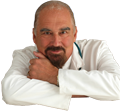
By Keith Scott-Mumby MD, MB ChB, PhD
It's not vitamins, growth hormone, emotional cleansing, tender loving care (TLC) or even exercise. They all help, of course they do!
But it's pretty clear to doctors who know their stuff what the number one factor is: you need to keep inflammation to an absolute minimum.
Inflammation is an insidious disease process that goes on in all tissues and organs and greatly accelerates change and decay.
Relaxed and efficient tissues and organs perform well but when they are hot and excited, suffering from a cascade of irritating painful chemicals known as inflammatory cytokines, everything quickly starts to break down and the aging process advances rapidly.
Most of the diseases which are hallmarks of decay and aging have a strong inflammatory component. Cancer, heart disease, arthritis, arteriosclerosis, Alzheimer's disease and diabetes (yes, you read those last two right)... these are all, essentially, inflammatory diseases.
Inflammation can be caused by allergies, parasites, intolerant substances, chemical pollutants, electrical and magnetic field burdens, microbes (especially hidden chronic infections) and a host of other factors.
And inflammation is cooled down by important nutrients like omega-3 fatty acids. Now you know why they work!
So What Can We Do?
Reduce the inflammatory load.
There is one very easy and amazingly successful way to do this, as I discovered in the late 1970s. You can do it. You don't even need a doctor to help you.
If you do it right you'll look and feel years younger within a matter of a couple of weeks. Patients I showed this to, back then, had amazing positive reactions from their friends and family: "What are you on? I want some!" and "You look ten years younger. What is your secret?"
Men looked fitter and more "present"; women looked sexier, with fewer lines and more energy, despite long hours in the kitchen or at the office.
What's the big secret?
It's eliminating stressor or inflammatory foods. These are not just allergy foods (which are very common) but other unsuitable elements in your diet.
Now this is NOT the same story as eating right for your type, the blood group diet, food combining or acid vs. alkaline foods, OR ANY OTHER DIET "THEORY".
This is about working out your own personal UNIQUE anti-inflammatory diet.
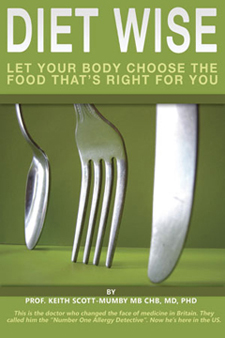
Here's the Truth
The truth is that everybody is unique. That means nobody is average. That means there are an infinite number of "types". You need to dump all that stuff and grasp one simple fact: your own perfect eating plan is exclusive to you and you won't find it in anyone else's book!
You have to figure out what foods are cool for you and which ones cause an inflammatory reaction. Eat the former and avoid the latter. Your body will love it!
I can tell you how to do all this and that's the ONLY book you'll really need. I called it "Diet Wise" because you would truly be wise about foods, if you only learned these few very simple health principles.
Most doctors haven't a clue about nutrition. They ramble on about a "balanced" diet. By that, they seem to mean "a balance of junk", like bread, cereals, cream, tea and coffee- they don't get it and think all foods are friendly because they "feed us".
The truth is that wrong foods can cause damage; a lot of damage. The wrong foods will age you quicker than warm cookies fly out of the kitchen.

By Keith Scott-Mumby MD, MB ChB, PhD
It's not vitamins, growth hormone, emotional cleansing, tender loving care (TLC) or even exercise. They all help, of course they do!
But it's pretty clear to doctors who know their stuff what the number one factor is: you need to keep inflammation to an absolute minimum.
Inflammation is an insidious disease process that goes on in all tissues and organs and greatly accelerates change and decay.
Relaxed and efficient tissues and organs perform well but when they are hot and excited, suffering from a cascade of irritating painful chemicals known as inflammatory cytokines, everything quickly starts to break down and the aging process advances rapidly.
Most of the diseases which are hallmarks of decay and aging have a strong inflammatory component. Cancer, heart disease, arthritis, arteriosclerosis, Alzheimer's disease and diabetes (yes, you read those last two right)... these are all, essentially, inflammatory diseases.
Inflammation can be caused by allergies, parasites, intolerant substances, chemical pollutants, electrical and magnetic field burdens, microbes (especially hidden chronic infections) and a host of other factors.
And inflammation is cooled down by important nutrients like omega-3 fatty acids. Now you know why they work!
So What Can We Do?
Reduce the inflammatory load.
There is one very easy and amazingly successful way to do this, as I discovered in the late 1970s. You can do it. You don't even need a doctor to help you.
If you do it right you'll look and feel years younger within a matter of a couple of weeks. Patients I showed this to, back then, had amazing positive reactions from their friends and family: "What are you on? I want some!" and "You look ten years younger. What is your secret?"
Men looked fitter and more "present"; women looked sexier, with fewer lines and more energy, despite long hours in the kitchen or at the office.
What's the big secret?
It's eliminating stressor or inflammatory foods. These are not just allergy foods (which are very common) but other unsuitable elements in your diet.
Now this is NOT the same story as eating right for your type, the blood group diet, food combining or acid vs. alkaline foods, OR ANY OTHER DIET "THEORY".
This is about working out your own personal UNIQUE anti-inflammatory diet.

Here's the Truth
The truth is that everybody is unique. That means nobody is average. That means there are an infinite number of "types". You need to dump all that stuff and grasp one simple fact: your own perfect eating plan is exclusive to you and you won't find it in anyone else's book!
You have to figure out what foods are cool for you and which ones cause an inflammatory reaction. Eat the former and avoid the latter. Your body will love it!
I can tell you how to do all this and that's the ONLY book you'll really need. I called it "Diet Wise" because you would truly be wise about foods, if you only learned these few very simple health principles.
Most doctors haven't a clue about nutrition. They ramble on about a "balanced" diet. By that, they seem to mean "a balance of junk", like bread, cereals, cream, tea and coffee- they don't get it and think all foods are friendly because they "feed us".
The truth is that wrong foods can cause damage; a lot of damage. The wrong foods will age you quicker than warm cookies fly out of the kitchen.
Testosterone Supplements Double Men's Odds for Blood Clots
https://www.newsmax.com/health/heal...b=DM67220_11142019&s=acs&dkt_nbr=010102rgy8vc
https://www.newsmax.com/health/heal...b=DM67220_11142019&s=acs&dkt_nbr=010102rgy8vc
Broken Promises: GMOs Do Not Reduce Chemical Use
http://www.gmosrevealed.com/broken-promises-gmos-do-not-reduce-chemical-use/
http://www.gmosrevealed.com/broken-promises-gmos-do-not-reduce-chemical-use/
An Unnatural Epidemic: Kidney Disease Caused by Glyphosate
http://www.gmosrevealed.com/an-unnatural-epidemic-kidney-disease-caused-by-glyphosate/
http://www.gmosrevealed.com/an-unnatural-epidemic-kidney-disease-caused-by-glyphosate/
CRISPR Gene Editing: What You Need to Know


http://www.gmosrevealed.com/crispr-gene-editing-what-you-need-to-know/
http://www.gmosrevealed.com/crispr-gene-editing-what-you-need-to-know/
Low vitamin D levels linked to poor liver and kidney function
https://www.naturalhealth365.com/vitamin-d-fatty-liver-3187.html
https://www.naturalhealth365.com/vitamin-d-fatty-liver-3187.html
Many cancer survivors have asked me if there’s anything natural they can take for neuropathy from chemo.
The sensation of numbness and tingling is a common side effect that can be hard to shake once treatment ends. The good news is, there are some natural therapies that have been super helpful for my patients with neuropathy and I wanted to share these things with you.
But first, let’s talk about what neuropathy is and why neuropathy (or as the research calls it, neurotoxicity) happens in the first place.
Defining Neuropathy
Chemotherapy induced peripheral neuropathy (CIPN) is typically defined by the symptoms it causes. Although neuropathy is most frequently caused by chemotherapy, it can also be caused by radiation and surgery, too.
The symptoms that comprise neuropathy include: numbness, tingling, pain, and having reduced sensation in the hands and/or feet. In really advanced cases, neuropathy can show up as difficulty walking or general changes in movement in general.
Causes of Neuropathy
The exact cause of CIPN or cancer neuropathy from chemo has been hard to figure out. Recently, scientists have narrowed down the causes to:
Structural changes in the nerves – the actual structure and function of the nerves are changed.
DNA damage – by damaging the DNA, there can be changes in the ability for the nerve to regenerate, repair, and grow.
Mitochondrial Changes – this is where your cells make energy.
Increased Oxidative Stress – simply put, oxidation is the same thing that causes metal to rust.
So oxidative stress in our body causes damage to our cells.
Ion Channel Changes – the ion channels are how cells communicate and receive signals. When this changes, the nerves’ ability to function also changes.
Neuroinflammation – this is inflammation of the nerve cells.
Natural Treatments for Neuropathy from Chemo
Acupuncture and Dry Needling: acupuncture can increase blood flow in the arms and legs, promote nerve repair, stop nerve damage, and reduce pain.
Calcium + Magnesium: In some studies, calcium and magnesium decreased neuropathy incidence by up to 50%. But, these minerals are discouraged during certain chemotherapies because it might make treatment less effective. Calcium and magnesium could help balance the changes in the ion channels.
Glutamine: An amino acid that may be helpful for reducing neuropathy through reducing mitochondrial changes, protecting the mitochondria, and reducing neuroinflammation.
Glutathione: This amino acid may also be discouraged during chemotherapy, but certain drugs deplete glutathione, leaving the nerves at risk for oxidative stress and mitochondrial changes. It has been studied with Cisplatin, and was shown to be useful in preventing neuropathy caused by Cisplatin.
Curcumin: An herb that might protect the nerves from chemotherapy. In cell cultures, it has been shown to help the nerves grow new branches and to improve damage caused by chemotherapy.
Quercetin: In rat studies, quercetin was effective at reducing mitochondrial damage to the nerves and promote nerve conduction or communication in already damaged nerve cells.
Ginkgo Biloba: In mice and rats with chemotherapy-induced peripheral neuropathy, ginkgo was shown to promote new nerve growth, improve sensation, and reduce oxidative stress.
Goshajinkigan: In a group of people being treated for colon cancer, this traditional herb combination prevented high-grade neuropathy. In the group of people taking the herbs, only 33% experienced neuropathy. In the group not using the herbs, 75% experienced neuropathy.
Holy Basil: In rats, holy basil reduced neurotoxicity by reducing oxidative stress and supporting the ion channels.
Alpha Lipoic Acid: A human clinical trial combining alpha-lipoic acid with MSM and Bromelain showed a reduction in neuropathy and pain when taken with chemotherapy. A larger trial is currently being suggested.
B-Vitamins: B-6, B-12, folate, and thiamine have been studied for reducing and reversing neuropathy caused by chemotherapy.
Some other natural therapies being studied to treat neuropathy from chemo that we will update you on as more information becomes available include:
St. John’s Wort
L-Carnitine
Vitamin E
Omega 3 Fats
Salvia officinalis
Walnut
Green Tea
N-Acetyl Cysteine
Acorus calamus
Butea monosperma
Xylopia aethiopica
I hope you’ve found the naturopathic remedies I’ve shared with you over the past week helpful. This is only the beginning! I have so much more to offer and I can’t wait to let you know more about how natural medicine can relieve your symptoms and improve your quality of life after chemo.
The sensation of numbness and tingling is a common side effect that can be hard to shake once treatment ends. The good news is, there are some natural therapies that have been super helpful for my patients with neuropathy and I wanted to share these things with you.
But first, let’s talk about what neuropathy is and why neuropathy (or as the research calls it, neurotoxicity) happens in the first place.
Defining Neuropathy
Chemotherapy induced peripheral neuropathy (CIPN) is typically defined by the symptoms it causes. Although neuropathy is most frequently caused by chemotherapy, it can also be caused by radiation and surgery, too.
The symptoms that comprise neuropathy include: numbness, tingling, pain, and having reduced sensation in the hands and/or feet. In really advanced cases, neuropathy can show up as difficulty walking or general changes in movement in general.
Causes of Neuropathy
The exact cause of CIPN or cancer neuropathy from chemo has been hard to figure out. Recently, scientists have narrowed down the causes to:
Structural changes in the nerves – the actual structure and function of the nerves are changed.
DNA damage – by damaging the DNA, there can be changes in the ability for the nerve to regenerate, repair, and grow.
Mitochondrial Changes – this is where your cells make energy.
Increased Oxidative Stress – simply put, oxidation is the same thing that causes metal to rust.
So oxidative stress in our body causes damage to our cells.
Ion Channel Changes – the ion channels are how cells communicate and receive signals. When this changes, the nerves’ ability to function also changes.
Neuroinflammation – this is inflammation of the nerve cells.
Natural Treatments for Neuropathy from Chemo
Acupuncture and Dry Needling: acupuncture can increase blood flow in the arms and legs, promote nerve repair, stop nerve damage, and reduce pain.
Calcium + Magnesium: In some studies, calcium and magnesium decreased neuropathy incidence by up to 50%. But, these minerals are discouraged during certain chemotherapies because it might make treatment less effective. Calcium and magnesium could help balance the changes in the ion channels.
Glutamine: An amino acid that may be helpful for reducing neuropathy through reducing mitochondrial changes, protecting the mitochondria, and reducing neuroinflammation.
Glutathione: This amino acid may also be discouraged during chemotherapy, but certain drugs deplete glutathione, leaving the nerves at risk for oxidative stress and mitochondrial changes. It has been studied with Cisplatin, and was shown to be useful in preventing neuropathy caused by Cisplatin.
Curcumin: An herb that might protect the nerves from chemotherapy. In cell cultures, it has been shown to help the nerves grow new branches and to improve damage caused by chemotherapy.
Quercetin: In rat studies, quercetin was effective at reducing mitochondrial damage to the nerves and promote nerve conduction or communication in already damaged nerve cells.
Ginkgo Biloba: In mice and rats with chemotherapy-induced peripheral neuropathy, ginkgo was shown to promote new nerve growth, improve sensation, and reduce oxidative stress.
Goshajinkigan: In a group of people being treated for colon cancer, this traditional herb combination prevented high-grade neuropathy. In the group of people taking the herbs, only 33% experienced neuropathy. In the group not using the herbs, 75% experienced neuropathy.
Holy Basil: In rats, holy basil reduced neurotoxicity by reducing oxidative stress and supporting the ion channels.
Alpha Lipoic Acid: A human clinical trial combining alpha-lipoic acid with MSM and Bromelain showed a reduction in neuropathy and pain when taken with chemotherapy. A larger trial is currently being suggested.
B-Vitamins: B-6, B-12, folate, and thiamine have been studied for reducing and reversing neuropathy caused by chemotherapy.
Some other natural therapies being studied to treat neuropathy from chemo that we will update you on as more information becomes available include:
St. John’s Wort
L-Carnitine
Vitamin E
Omega 3 Fats
Salvia officinalis
Walnut
Green Tea
N-Acetyl Cysteine
Acorus calamus
Butea monosperma
Xylopia aethiopica
I hope you’ve found the naturopathic remedies I’ve shared with you over the past week helpful. This is only the beginning! I have so much more to offer and I can’t wait to let you know more about how natural medicine can relieve your symptoms and improve your quality of life after chemo.
Best Habits for Amplifying your Energy Reserves
If you’re like most stable, 9 in the morning til 5 in the evening, two hour daily commute Americans, the word “habit” is probably used most in terms of something you’d like to quit.
Smoking… drinking… eating junk food…
Or if you’re a forward-thinking progressive person intent on self-actualization, you may find yourself preoccupied with how to effectively form a healthy habit.
Oil pulling… meal-prepping… yoga…
Does it take 3 weeks? 6 weeks? And how many new habits can you take on at once before you get tired and quit all of them? What happens if your habits drain you and detract from the energy you had before healthy habits become your downfall?
The solution, of course, is to curate your habit development to only include habits that will replenish and rejuvenate your spirits in and of themselves.
Everything that you do should serve you. Think about the rise of Marie Kondo’s popularity…
What she brought to people was the idea that everything in your physical space should bring you joy. And that if it doesn’t bring you joy, it’s not assisting you in building the life that you want. Similarly, if the way that you spend your time is draining you, then your energy expenditures aren’t fulfilling their function.
You should feel juiced by your interests. They should make you feel alert, rested, and alive.
So in this post, we’re going to look at ways you can incorporate life-activating habits into your routine — because happy hour, shopping, and watching sports are only takers. They don’t give.
Make One Meal a Day an Event
That doesn’t mean to eat a lavish meal at a fancy restaurant every day. What it means is that part of Western culture involves eating thoughtlessly.
We scarf food down in the car on the way to work. We eat at our desks instead of communing with our friends and colleagues.
We pop a frozen pizza in the oven for dinner, eat in front of the TV, or call out for takeaway because the night’s gotten away from us and we don’t feel like preparing, cooking, and cleaning up after a meal.
And eating, for humans, is much more than physically necessary. Consciously eating is important for digestion (we tend to chew more and eat more slowly when we’re aware) and for human connection.
So once a day, pay attention to your meal. If you cooked it, marvel at the flavors you used. If someone cooked it for you, taste the love and care that went into the meal. If you went out to dinner with a friend, really think about the dish that would soothe you and practice feeling grateful for the work that resulted in your worry-free dinner. Instead of talking, scooping, chewing, and repeating, sit and listen to your dinner companion. Meal prep for the week to save yourself money and add engagement to your journey with food.
Make one meal a day special. Even if that just means eating by yourself with no sound and no distraction, savoring your nourishment.
Learn Something New
Listen — everyone’s tired. You don’t have to learn a different version of calculus every day.
But taking a few moments every day to learn something new has untold effects on your psyche. You’re stretching your brain-muscle. You’re contributing information to your ever-evolving knowledge bank. You’re increasing your confidence and perspective with every new area brooched.
Plus, it literally changes your brain chemistry. Practicing new skills and adding information to your brain-bank makes the myelin, or white matter in your brain, denser. Which makes future learning easier. And the exhilarating feeling that comes with trying something new?
Energizing.
Learn 10 new vocabulary words per day. Learn 10 new vocabulary words in a different language per day. Listen to a history podcast. Learn how to draw a tulip. Learn how to ferment your own pickles. Learn about an ancient, dead culture.
Engage Your Legs
We’ve become very sit-focused. We always have a lap. And it’s making us so tired.
The reason is actually purely biological — your body recognizes being still as the first step in going to sleep. The longer you remain seated, the more your body starts to prepare itself for long-term rest. And even worse, if you’re seated and staring at a screen — like your computer at work, your phone, or your TV — you’re already blinking less, which means your eyes are drier and readier for sleep.
So get up!
Practice rebounding. Use your standing desk. Walk around the block during your lunch break. Take your dog for a walk instead of letting him out back. Stand during happy hour instead of sitting on a stool. Oil pull with coconut oil while you do core body stretches in the morning. Delete your ridesharing app from your phone and see how far you can get on foot — you’ll probably be surprised.
Bottom line?
Habits are personal. They reflect your taste and interests. If you’re not athletic, and you love to read, taking a high-intensity cardiovascular fitness class might be a hard habit to engrain in your routine. But taking a book to the park and reading while you walk across it and back should get you up and moving.
Do what feels right for you.
But every day, try to eat consciously, learn something new, and get up and walk. In no time, you’ll forget what it feels like for your life-force to be drained from you.
If you’re like most stable, 9 in the morning til 5 in the evening, two hour daily commute Americans, the word “habit” is probably used most in terms of something you’d like to quit.
Smoking… drinking… eating junk food…
Or if you’re a forward-thinking progressive person intent on self-actualization, you may find yourself preoccupied with how to effectively form a healthy habit.
Oil pulling… meal-prepping… yoga…
Does it take 3 weeks? 6 weeks? And how many new habits can you take on at once before you get tired and quit all of them? What happens if your habits drain you and detract from the energy you had before healthy habits become your downfall?
The solution, of course, is to curate your habit development to only include habits that will replenish and rejuvenate your spirits in and of themselves.
Everything that you do should serve you. Think about the rise of Marie Kondo’s popularity…
What she brought to people was the idea that everything in your physical space should bring you joy. And that if it doesn’t bring you joy, it’s not assisting you in building the life that you want. Similarly, if the way that you spend your time is draining you, then your energy expenditures aren’t fulfilling their function.
You should feel juiced by your interests. They should make you feel alert, rested, and alive.
So in this post, we’re going to look at ways you can incorporate life-activating habits into your routine — because happy hour, shopping, and watching sports are only takers. They don’t give.
Make One Meal a Day an Event
That doesn’t mean to eat a lavish meal at a fancy restaurant every day. What it means is that part of Western culture involves eating thoughtlessly.
We scarf food down in the car on the way to work. We eat at our desks instead of communing with our friends and colleagues.
We pop a frozen pizza in the oven for dinner, eat in front of the TV, or call out for takeaway because the night’s gotten away from us and we don’t feel like preparing, cooking, and cleaning up after a meal.
And eating, for humans, is much more than physically necessary. Consciously eating is important for digestion (we tend to chew more and eat more slowly when we’re aware) and for human connection.
So once a day, pay attention to your meal. If you cooked it, marvel at the flavors you used. If someone cooked it for you, taste the love and care that went into the meal. If you went out to dinner with a friend, really think about the dish that would soothe you and practice feeling grateful for the work that resulted in your worry-free dinner. Instead of talking, scooping, chewing, and repeating, sit and listen to your dinner companion. Meal prep for the week to save yourself money and add engagement to your journey with food.
Make one meal a day special. Even if that just means eating by yourself with no sound and no distraction, savoring your nourishment.
Learn Something New
Listen — everyone’s tired. You don’t have to learn a different version of calculus every day.
But taking a few moments every day to learn something new has untold effects on your psyche. You’re stretching your brain-muscle. You’re contributing information to your ever-evolving knowledge bank. You’re increasing your confidence and perspective with every new area brooched.
Plus, it literally changes your brain chemistry. Practicing new skills and adding information to your brain-bank makes the myelin, or white matter in your brain, denser. Which makes future learning easier. And the exhilarating feeling that comes with trying something new?
Energizing.
Learn 10 new vocabulary words per day. Learn 10 new vocabulary words in a different language per day. Listen to a history podcast. Learn how to draw a tulip. Learn how to ferment your own pickles. Learn about an ancient, dead culture.
Engage Your Legs
We’ve become very sit-focused. We always have a lap. And it’s making us so tired.
The reason is actually purely biological — your body recognizes being still as the first step in going to sleep. The longer you remain seated, the more your body starts to prepare itself for long-term rest. And even worse, if you’re seated and staring at a screen — like your computer at work, your phone, or your TV — you’re already blinking less, which means your eyes are drier and readier for sleep.
So get up!
Practice rebounding. Use your standing desk. Walk around the block during your lunch break. Take your dog for a walk instead of letting him out back. Stand during happy hour instead of sitting on a stool. Oil pull with coconut oil while you do core body stretches in the morning. Delete your ridesharing app from your phone and see how far you can get on foot — you’ll probably be surprised.
Bottom line?
Habits are personal. They reflect your taste and interests. If you’re not athletic, and you love to read, taking a high-intensity cardiovascular fitness class might be a hard habit to engrain in your routine. But taking a book to the park and reading while you walk across it and back should get you up and moving.
Do what feels right for you.
But every day, try to eat consciously, learn something new, and get up and walk. In no time, you’ll forget what it feels like for your life-force to be drained from you.
The Benefits of Wakame Seaweed Salad on Blood Pressure
https://nutritionfacts.org/2019/11/...-25718665&mc_cid=d7beefd976&mc_eid=2fc2f620bb
https://nutritionfacts.org/2019/11/...-25718665&mc_cid=d7beefd976&mc_eid=2fc2f620bb
Vaccine Exemptions Under Attack in 2019
https://www.greenmedinfo.health/blo...uY29tIiwgImtsX2NvbXBhbnlfaWQiOiAiSzJ2WEF5In0=
https://www.greenmedinfo.health/blo...uY29tIiwgImtsX2NvbXBhbnlfaWQiOiAiSzJ2WEF5In0=
DNA MADE SIMPLE – THE ABC’S OF IMPROVING YOUR DNA
https://glownaturalwellness.com/dna...11d92e8c7a98d680f8914173f9191b1c0223e68310bb1
https://glownaturalwellness.com/dna...11d92e8c7a98d680f8914173f9191b1c0223e68310bb1
The Horrible Things That Happen In Your Body Within Minutes of Drinking a Soda
https://thenutritionwatchdog.com/th...-your-body-within-minutes-of-drinking-a-soda/
https://thenutritionwatchdog.com/th...-your-body-within-minutes-of-drinking-a-soda/
You’re Not Fat, You’re Inflamed!
https://womenshealthvideoseries.com...+fat+[First+Name+##cap]&utm_campaign=11142019
https://womenshealthvideoseries.com...+fat+[First+Name+##cap]&utm_campaign=11142019
Record-Challenging Low Temperatures Everywhere
https://coldclimatechange.com/record-challenging-low-temperatures-everywhere/
https://coldclimatechange.com/record-challenging-low-temperatures-everywhere/
The Declining Health of Millennials
https://responsibletechnology.org/j...tent&eId=93e52f37-3e5a-417d-8d0f-cbd857bea765
https://responsibletechnology.org/j...tent&eId=93e52f37-3e5a-417d-8d0f-cbd857bea765
Australia May Endanger the World’s Ecosystem
https://responsibletechnology.org/j...tent&eId=93e52f37-3e5a-417d-8d0f-cbd857bea765
https://responsibletechnology.org/j...tent&eId=93e52f37-3e5a-417d-8d0f-cbd857bea765
That's the gods honest truth.....!Is Inflammation the Silent Killer?

By Keith Scott-Mumby MD, MB ChB, PhD
It's not vitamins, growth hormone, emotional cleansing, tender loving care (TLC) or even exercise. They all help, of course they do!
But it's pretty clear to doctors who know their stuff what the number one factor is: you need to keep inflammation to an absolute minimum.
Inflammation is an insidious disease process that goes on in all tissues and organs and greatly accelerates change and decay.
Relaxed and efficient tissues and organs perform well but when they are hot and excited, suffering from a cascade of irritating painful chemicals known as inflammatory cytokines, everything quickly starts to break down and the aging process advances rapidly.
Most of the diseases which are hallmarks of decay and aging have a strong inflammatory component. Cancer, heart disease, arthritis, arteriosclerosis, Alzheimer's disease and diabetes (yes, you read those last two right)... these are all, essentially, inflammatory diseases.
Inflammation can be caused by allergies, parasites, intolerant substances, chemical pollutants, electrical and magnetic field burdens, microbes (especially hidden chronic infections) and a host of other factors.
And inflammation is cooled down by important nutrients like omega-3 fatty acids. Now you know why they work!
So What Can We Do?
Reduce the inflammatory load.
There is one very easy and amazingly successful way to do this, as I discovered in the late 1970s. You can do it. You don't even need a doctor to help you.
If you do it right you'll look and feel years younger within a matter of a couple of weeks. Patients I showed this to, back then, had amazing positive reactions from their friends and family: "What are you on? I want some!" and "You look ten years younger. What is your secret?"
Men looked fitter and more "present"; women looked sexier, with fewer lines and more energy, despite long hours in the kitchen or at the office.
What's the big secret?
It's eliminating stressor or inflammatory foods. These are not just allergy foods (which are very common) but other unsuitable elements in your diet.
Now this is NOT the same story as eating right for your type, the blood group diet, food combining or acid vs. alkaline foods, OR ANY OTHER DIET "THEORY".
This is about working out your own personal UNIQUE anti-inflammatory diet.

Here's the Truth
The truth is that everybody is unique. That means nobody is average. That means there are an infinite number of "types". You need to dump all that stuff and grasp one simple fact: your own perfect eating plan is exclusive to you and you won't find it in anyone else's book!
You have to figure out what foods are cool for you and which ones cause an inflammatory reaction. Eat the former and avoid the latter. Your body will love it!
I can tell you how to do all this and that's the ONLY book you'll really need. I called it "Diet Wise" because you would truly be wise about foods, if you only learned these few very simple health principles.
Most doctors haven't a clue about nutrition. They ramble on about a "balanced" diet. By that, they seem to mean "a balance of junk", like bread, cereals, cream, tea and coffee- they don't get it and think all foods are friendly because they "feed us".
The truth is that wrong foods can cause damage; a lot of damage. The wrong foods will age you quicker than warm cookies fly out of the kitchen.
Another good one, Jimi...!Many cancer survivors have asked me if there’s anything natural they can take for neuropathy from chemo.
The sensation of numbness and tingling is a common side effect that can be hard to shake once treatment ends. The good news is, there are some natural therapies that have been super helpful for my patients with neuropathy and I wanted to share these things with you.
But first, let’s talk about what neuropathy is and why neuropathy (or as the research calls it, neurotoxicity) happens in the first place.
Defining Neuropathy
Chemotherapy induced peripheral neuropathy (CIPN) is typically defined by the symptoms it causes. Although neuropathy is most frequently caused by chemotherapy, it can also be caused by radiation and surgery, too.
The symptoms that comprise neuropathy include: numbness, tingling, pain, and having reduced sensation in the hands and/or feet. In really advanced cases, neuropathy can show up as difficulty walking or general changes in movement in general.
Causes of Neuropathy
The exact cause of CIPN or cancer neuropathy from chemo has been hard to figure out. Recently, scientists have narrowed down the causes to:
Structural changes in the nerves – the actual structure and function of the nerves are changed.
DNA damage – by damaging the DNA, there can be changes in the ability for the nerve to regenerate, repair, and grow.
Mitochondrial Changes – this is where your cells make energy.
Increased Oxidative Stress – simply put, oxidation is the same thing that causes metal to rust.
So oxidative stress in our body causes damage to our cells.
Ion Channel Changes – the ion channels are how cells communicate and receive signals. When this changes, the nerves’ ability to function also changes.
Neuroinflammation – this is inflammation of the nerve cells.
Natural Treatments for Neuropathy from Chemo
Acupuncture and Dry Needling: acupuncture can increase blood flow in the arms and legs, promote nerve repair, stop nerve damage, and reduce pain.
Calcium + Magnesium: In some studies, calcium and magnesium decreased neuropathy incidence by up to 50%. But, these minerals are discouraged during certain chemotherapies because it might make treatment less effective. Calcium and magnesium could help balance the changes in the ion channels.
Glutamine: An amino acid that may be helpful for reducing neuropathy through reducing mitochondrial changes, protecting the mitochondria, and reducing neuroinflammation.
Glutathione: This amino acid may also be discouraged during chemotherapy, but certain drugs deplete glutathione, leaving the nerves at risk for oxidative stress and mitochondrial changes. It has been studied with Cisplatin, and was shown to be useful in preventing neuropathy caused by Cisplatin.
Curcumin: An herb that might protect the nerves from chemotherapy. In cell cultures, it has been shown to help the nerves grow new branches and to improve damage caused by chemotherapy.
Quercetin: In rat studies, quercetin was effective at reducing mitochondrial damage to the nerves and promote nerve conduction or communication in already damaged nerve cells.
Ginkgo Biloba: In mice and rats with chemotherapy-induced peripheral neuropathy, ginkgo was shown to promote new nerve growth, improve sensation, and reduce oxidative stress.
Goshajinkigan: In a group of people being treated for colon cancer, this traditional herb combination prevented high-grade neuropathy. In the group of people taking the herbs, only 33% experienced neuropathy. In the group not using the herbs, 75% experienced neuropathy.
Holy Basil: In rats, holy basil reduced neurotoxicity by reducing oxidative stress and supporting the ion channels.
Alpha Lipoic Acid: A human clinical trial combining alpha-lipoic acid with MSM and Bromelain showed a reduction in neuropathy and pain when taken with chemotherapy. A larger trial is currently being suggested.
B-Vitamins: B-6, B-12, folate, and thiamine have been studied for reducing and reversing neuropathy caused by chemotherapy.
Some other natural therapies being studied to treat neuropathy from chemo that we will update you on as more information becomes available include:
St. John’s Wort
L-Carnitine
Vitamin E
Omega 3 Fats
Salvia officinalis
Walnut
Green Tea
N-Acetyl Cysteine
Acorus calamus
Butea monosperma
Xylopia aethiopica
I hope you’ve found the naturopathic remedies I’ve shared with you over the past week helpful. This is only the beginning! I have so much more to offer and I can’t wait to let you know more about how natural medicine can relieve your symptoms and improve your quality of life after chemo.
Today's Health Thought:
It's bizarre that the produce manager is more important to ones health than the doctors are
This is great, thanks.
The Declining Health of Millennials
https://responsibletechnology.org/j...tent&eId=93e52f37-3e5a-417d-8d0f-cbd857bea765
Thanks for the Jeffrey Smith articles. Really good!
Yes it is and many don't realize itThat's the gods honest truth.....!
Pay Attention to These Warning Signs of Pancreatic Cancer
https://www.newsmax.com/health/heal...b=DM66369_11152019&s=acs&dkt_nbr=010102dupukl
https://www.newsmax.com/health/heal...b=DM66369_11152019&s=acs&dkt_nbr=010102dupukl
Back to the Kitchen: Escaping Processed Food
https://www.utne.com/food/processed...640D32A5D764D2CD96CC799B4D811A3D986#readmore4
https://www.utne.com/food/processed...640D32A5D764D2CD96CC799B4D811A3D986#readmore4
Remembering Great Moments in Sports
Draws Out Dementia Patients
The performance of the United States in the 2019 Rugby World Cup is something to quickly forget, having lost all four games in the group stages.
On the other hand, we may have fond memories of Tiger Woods' triumphs, Michael Phelps winning any one of 18 gold swimming medals, or Michael Jordan leading the Chicago Bulls to six national championships.
Reliving great sporting moments like these has a purpose that goes far beyond a few brief moments of joy. It boosts and strengthens the brain.
The reason is something called “emotional memory.” Here’s a report from our UK correspondent, Michael Sellar. . .
Before the Rugby World Cup kicked off in Japan in September, Professor Alistair Burns, the director of dementia at the National Health Service in England, took advantage of the forthcoming tournament to point out the importance of sporting memories.
"For people in old age and those living with dementia, memorable sporting events provide a connection with the past, prompt conversations and improve mental health."
He continued by saying that sport brings people together and enables them to share emotional experiences with lasting benefit. It's a great way for anybody, but older people in particular, to socialize, make new friends and even find the inspiration to take up physical activities.
Emphasizing the importance of emotional memory, he added, "Watching classic games and reliving tense moments can stimulate powerful emotional memories which can be revived many years after the events.
"Emotional memory, which is one of two main types of memory in the human brain, can be more powerful than memory for personal events, so as people in later life relive exciting or tense moments, this can stimulate memories, potentially strengthening brain activity.”
"Details may fade,” Professor Burns concluded, “but the thrill, buzz and intensity of sporting drama stays lodged in our minds -- and reawakening them keeps the brain match-fit."
Sports Stir the Soul
The UK charity Sporting Memories was set up specifically for people to connect with their past, rekindle memories, keep the brain active and socialize with other sports fans.
One of its co-founders, Tony Jameson-Allen, said that recalling great sporting moments can help tackle dementia, depression and loneliness.
"Sport unites communities and generations; it stirs the soul and can reawaken powerful emotions. Every week we witness the positive impact recalling great sporting moments has on the physical and mental well-being of our group members, many of whom live with dementia."
Another co-founder, Michael White, who runs sessions in Scotland, said the impact the meetings have on participants prove the concept works.
He recalls, for instance, a quiet, reluctant member of the day center called Bill. He came out of his shell only after the Sporting Memories group started up.
He was shown soccer photographs from the 1940s and 50s. This stimulated his memory and he started talking about his life as a soccer player. It turned out he had played for the Scottish national team no less. Up until then nobody in the center had any idea about his sporting career.
Mr. White said that Bill's reaction was the proof he needed to use sporting images to trigger memories.
"I only had to show Bill a picture...and we were off. It was simply amazing to watch."
Remembering Clearly, 60 Years Later
John MacKinnon is chaplain to a professional soccer club in Scotland and is involved with the Sporting Memories program in the local community.
"We're finding they can recount and recall stuff that's meant a lot and it's still there, and out it comes, and you see the smile and you see the joy -- you see the remembrance," he said.
"It's amazing the guys that come in here who can name the team line-ups of their given team from 1958/59."
The wife of an attendee summed up the importance of the Sporting Memories program to her husband:
"He loves coming to these sessions. He told his brother these clubs are his whole life -- and that's what gets him through, I think."
Possibly the main lesson here is that we could draw out some dementia patients, and reengage them, simply by talking about the things they were passionately interested in when young.
I wonder if friends, relatives and caregivers do enough of that.
Draws Out Dementia Patients
The performance of the United States in the 2019 Rugby World Cup is something to quickly forget, having lost all four games in the group stages.
On the other hand, we may have fond memories of Tiger Woods' triumphs, Michael Phelps winning any one of 18 gold swimming medals, or Michael Jordan leading the Chicago Bulls to six national championships.
Reliving great sporting moments like these has a purpose that goes far beyond a few brief moments of joy. It boosts and strengthens the brain.
The reason is something called “emotional memory.” Here’s a report from our UK correspondent, Michael Sellar. . .
Before the Rugby World Cup kicked off in Japan in September, Professor Alistair Burns, the director of dementia at the National Health Service in England, took advantage of the forthcoming tournament to point out the importance of sporting memories.
"For people in old age and those living with dementia, memorable sporting events provide a connection with the past, prompt conversations and improve mental health."
He continued by saying that sport brings people together and enables them to share emotional experiences with lasting benefit. It's a great way for anybody, but older people in particular, to socialize, make new friends and even find the inspiration to take up physical activities.
Emphasizing the importance of emotional memory, he added, "Watching classic games and reliving tense moments can stimulate powerful emotional memories which can be revived many years after the events.
"Emotional memory, which is one of two main types of memory in the human brain, can be more powerful than memory for personal events, so as people in later life relive exciting or tense moments, this can stimulate memories, potentially strengthening brain activity.”
"Details may fade,” Professor Burns concluded, “but the thrill, buzz and intensity of sporting drama stays lodged in our minds -- and reawakening them keeps the brain match-fit."
Sports Stir the Soul
The UK charity Sporting Memories was set up specifically for people to connect with their past, rekindle memories, keep the brain active and socialize with other sports fans.
One of its co-founders, Tony Jameson-Allen, said that recalling great sporting moments can help tackle dementia, depression and loneliness.
"Sport unites communities and generations; it stirs the soul and can reawaken powerful emotions. Every week we witness the positive impact recalling great sporting moments has on the physical and mental well-being of our group members, many of whom live with dementia."
Another co-founder, Michael White, who runs sessions in Scotland, said the impact the meetings have on participants prove the concept works.
He recalls, for instance, a quiet, reluctant member of the day center called Bill. He came out of his shell only after the Sporting Memories group started up.
He was shown soccer photographs from the 1940s and 50s. This stimulated his memory and he started talking about his life as a soccer player. It turned out he had played for the Scottish national team no less. Up until then nobody in the center had any idea about his sporting career.
Mr. White said that Bill's reaction was the proof he needed to use sporting images to trigger memories.
"I only had to show Bill a picture...and we were off. It was simply amazing to watch."
Remembering Clearly, 60 Years Later
John MacKinnon is chaplain to a professional soccer club in Scotland and is involved with the Sporting Memories program in the local community.
"We're finding they can recount and recall stuff that's meant a lot and it's still there, and out it comes, and you see the smile and you see the joy -- you see the remembrance," he said.
"It's amazing the guys that come in here who can name the team line-ups of their given team from 1958/59."
The wife of an attendee summed up the importance of the Sporting Memories program to her husband:
"He loves coming to these sessions. He told his brother these clubs are his whole life -- and that's what gets him through, I think."
Possibly the main lesson here is that we could draw out some dementia patients, and reengage them, simply by talking about the things they were passionately interested in when young.
I wonder if friends, relatives and caregivers do enough of that.
Paleo Diets May Negate Benefits of Exercise
https://nutritionfacts.org/video/fl...-25718665&mc_cid=caaec36c08&mc_eid=2fc2f620bb
https://nutritionfacts.org/video/fl...-25718665&mc_cid=caaec36c08&mc_eid=2fc2f620bb



